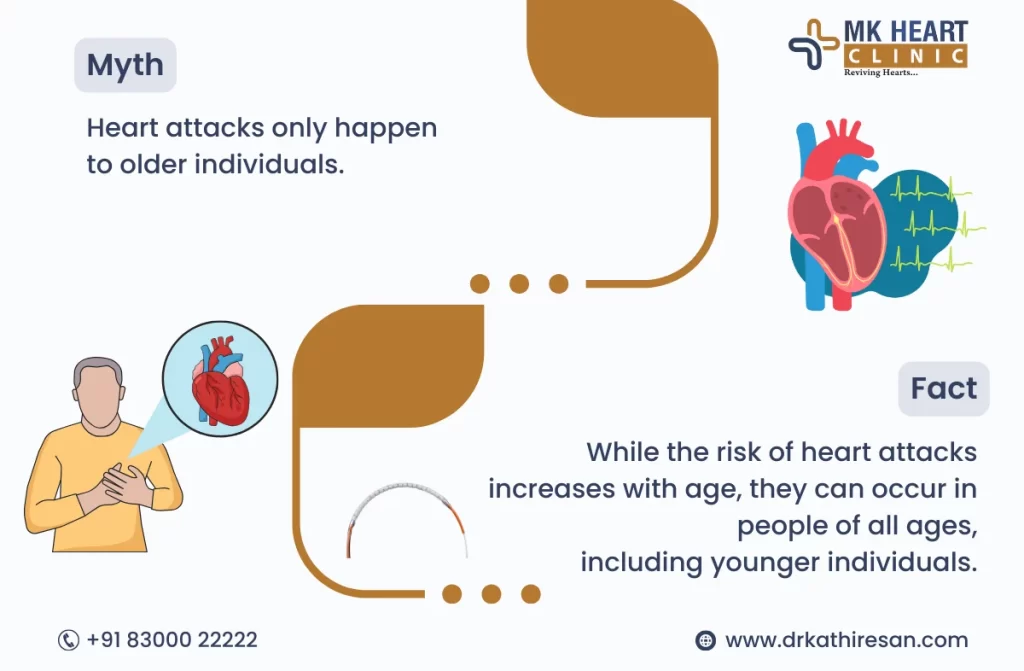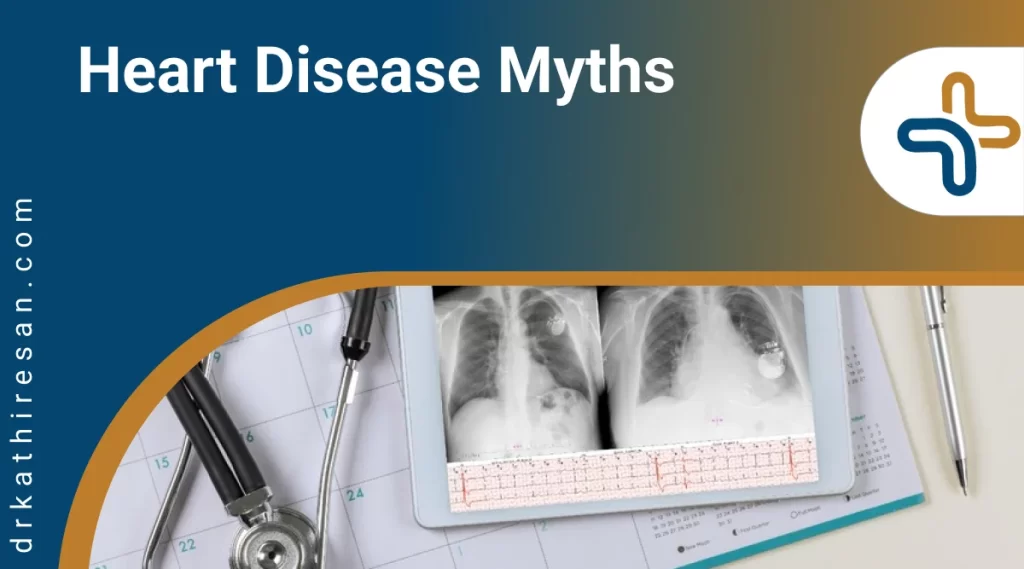Heart disease is one of the leading causes of death worldwide, making it important to understand the risk factors that contribute to its development. One common misconception is the belief that fatty foods and cholesterol are the primary causes of heart disease.
In this blog, we will explore the facts behind the heart disease myths of fatty food and provide a deeper understanding of the link between cholesterol and heart disease. And also, this blog will give you some more heart disease myths: on Regular Moderate Exercise vs strenuous esercise that Can Be Just as Effective for Heart Health.
What is Cholesterol?
Cholesterol is a waxy substance found in the blood and is an essential component of cell membranes. It is also involved in the production of hormones and vitamin D. There are LDL (low-density lipoprotein) and HDL (high-density lipoprotein). LDL is often referred to as the “bad” cholesterol because it can build up in the arteries, leading to blockages and increasing the risk of heart disease. On the other hand, HDL is known as the “good” cholesterol because it helps remove excess cholesterol from the body.
The Link between Fatty Foods and Cholesterol
Fatty foods, such as red meat, dairy products, and deep-fried foods, are often high in saturated and trans fats. These types of fats raise cholesterol levels, particularly LDL cholesterol, which can contribute to the development of heart disease. A diet high in saturated and trans fats can also lead to obesity, which is another risk factor for heart disease.
Debunking the Fatty Foods Myth
Despite the link between heart disease myths of fatty foods and elevated cholesterol levels, research has shown that other factors, such as genetics, age, and physical inactivity, also play a significant role in the development of heart disease. In addition, a diet that is high in fruits, vegetables, whole grains, and lean protein can help control cholesterol levels and reduce the risk of heart disease.

The Importance of a Balanced Diet for Heart Health
The key to promoting heart health is to maintain a balanced diet that includes a variety of nutrient-rich foods. These myths about the heart include limiting your intake of fatty foods and focusing on foods that are high in fiber, such as whole grains, fruits, and vegetables. Additionally, engaging in regular physical activity, not smoking, and managing stress can help reduce your heart disease risk.
Strenuous Exercise vs. Moderate Exercise
Strenuous exercise is defined as intense physical activity that raises your heart rate and leaves you feeling exhausted. Examples of strenuous exercise include running a marathon, doing high-intensity interval training (HIIT), or lifting heavy weights.
On the other hand, moderate exercise is any physical activity that elevates your heart rate but doesn’t leave you feeling completely exhausted. Examples of moderate exercise include brisk walking, cycling, swimming, or playing doubles tennis.
Heart Disease Myths
Common myths about heart disease often lead to misinformation and inadequate prevention. Some prevalent misconceptions include thinking it only affects older adults; however, heart disease can strike at any age. Believing that heart disease is primarily a male concern is another fallacy; it’s the leading cause of death in both men and women.
Assuming heart disease is inevitable if it runs in the family is also untrue; lifestyle choices play a significant role. Finally, underestimating the importance of regular check-ups and healthy habits can be detrimental. Accurate knowledge and proactive measures are essential for effective heart disease prevention.
Benefits of Regular Moderate Exercise for Heart Health
Regular moderate exercise has some heart disease myths and also has many heart-health benefits, including improved cardiovascular function, lower risk of heart disease, increased longevity, and improved mental health. It has been shown that even moderate physical activity for as little as 30 minutes a day can led to significant health benefits.
Heart Disease Myths: Separating Myths From Facts
- Myth: Heart disease only affects older adults.
- Fact: Heart disease can affect people of all ages, including young adults. Lifestyle factors contribute to early onset.
- Myth: Only men are at risk of heart disease.
- Fact: Both men and women are susceptible. Women often experience different symptoms, leading to underdiagnosis.
- Myth: If you have a family history, you can’t prevent heart disease.
- Fact: Healthy lifestyle choices can mitigate genetic predisposition and reduce risk.
- Myth: Exercise is only beneficial for weight loss.
- Fact: Regular exercise improves heart health, regardless of weight loss.
- Myth: High cholesterol is only influenced by diet.
- Fact: Genetics and lifestyle contribute to cholesterol levels. Diet is one aspect.
- Myth: Stress doesn’t impact heart health.
- Fact: Chronic stress can contribute to heart disease. Managing stress is crucial.
Heart Disease Myths: Separating myths from facts is essential for making informed decisions about heart health. Stay informed and adopt a heart-healthy lifestyle.
Conclusion
Heart disease myths about fatty foods have been circulating for decades, but it is important to understand that heart disease is a complex condition with many risk factors. While a diet high in fatty foods can raise cholesterol levels, it is only one factor in the development of heart disease. Maintaining a balanced diet, engaging in regular physical activity, and managing stress are all essential components of promoting heart health.
Read, Alos Transcatheter Tricuspid Valve Replacement in Chennai.



